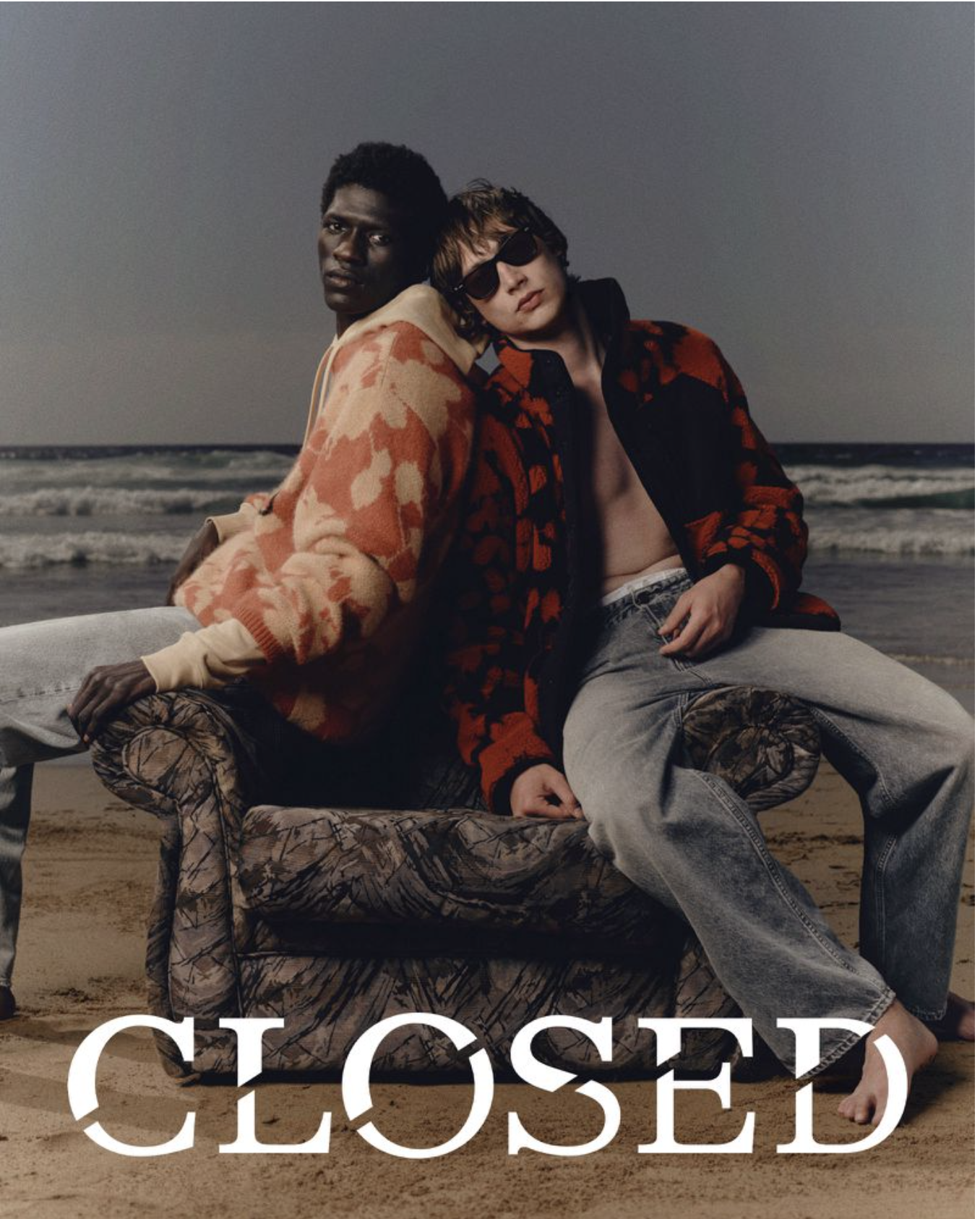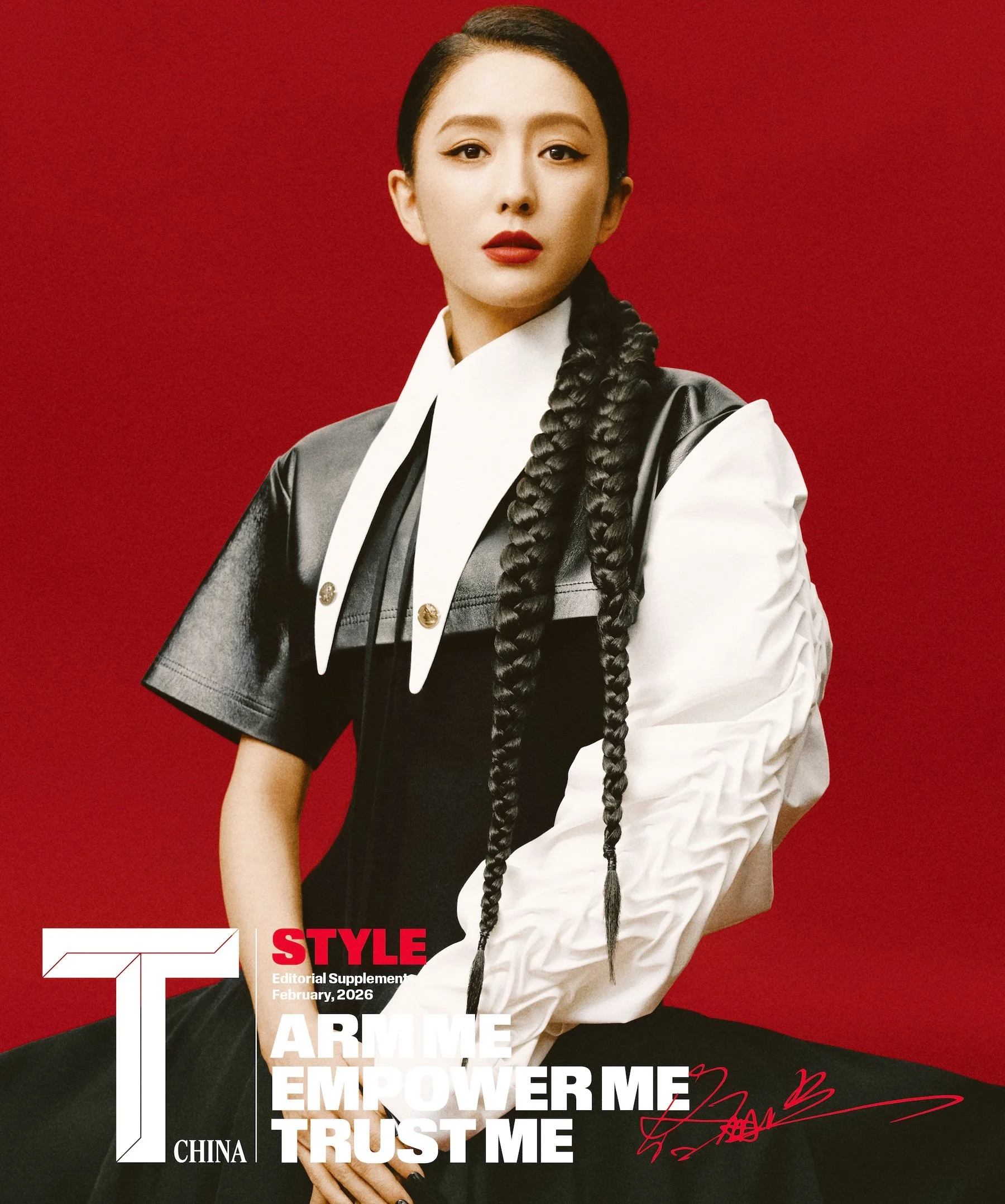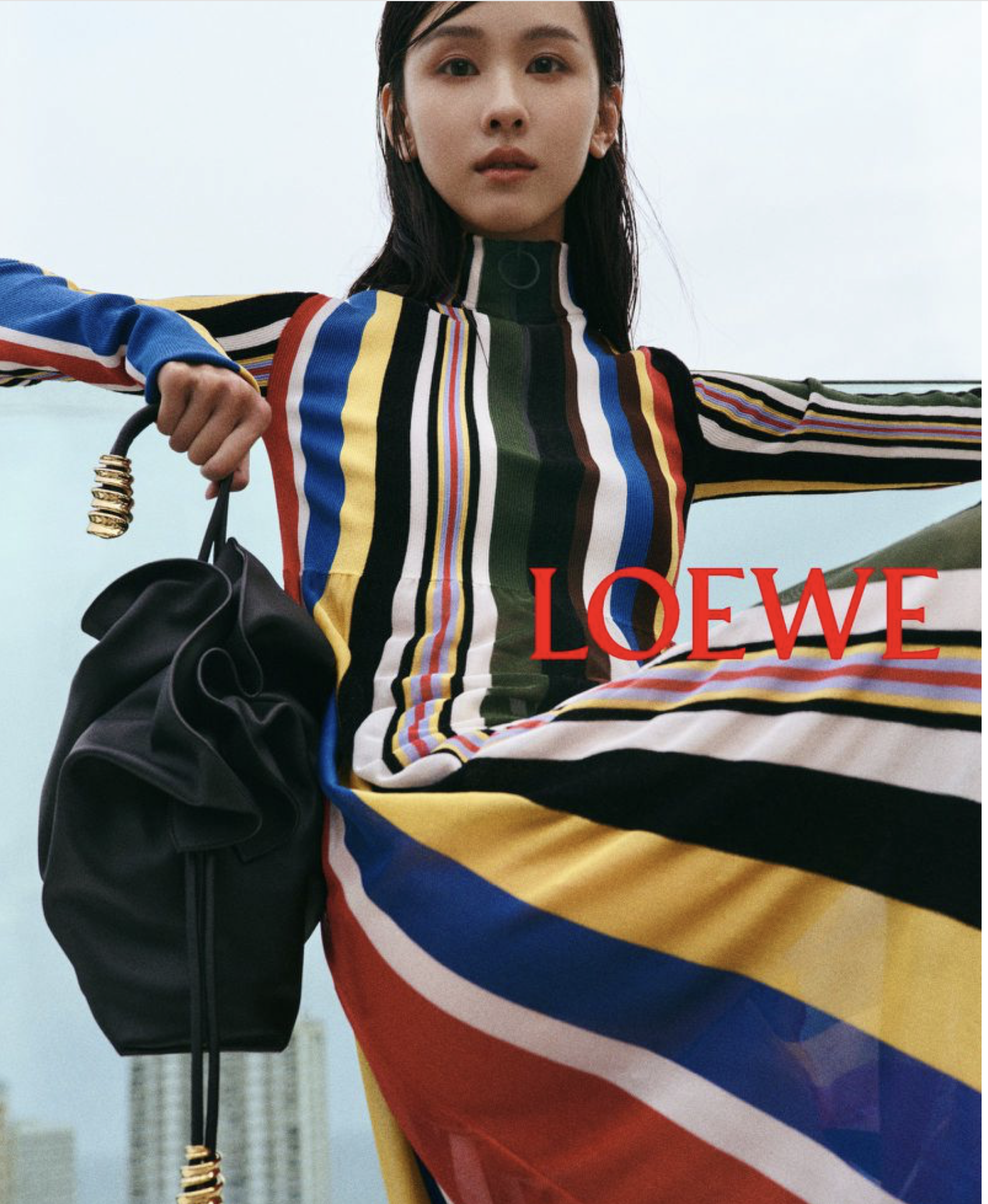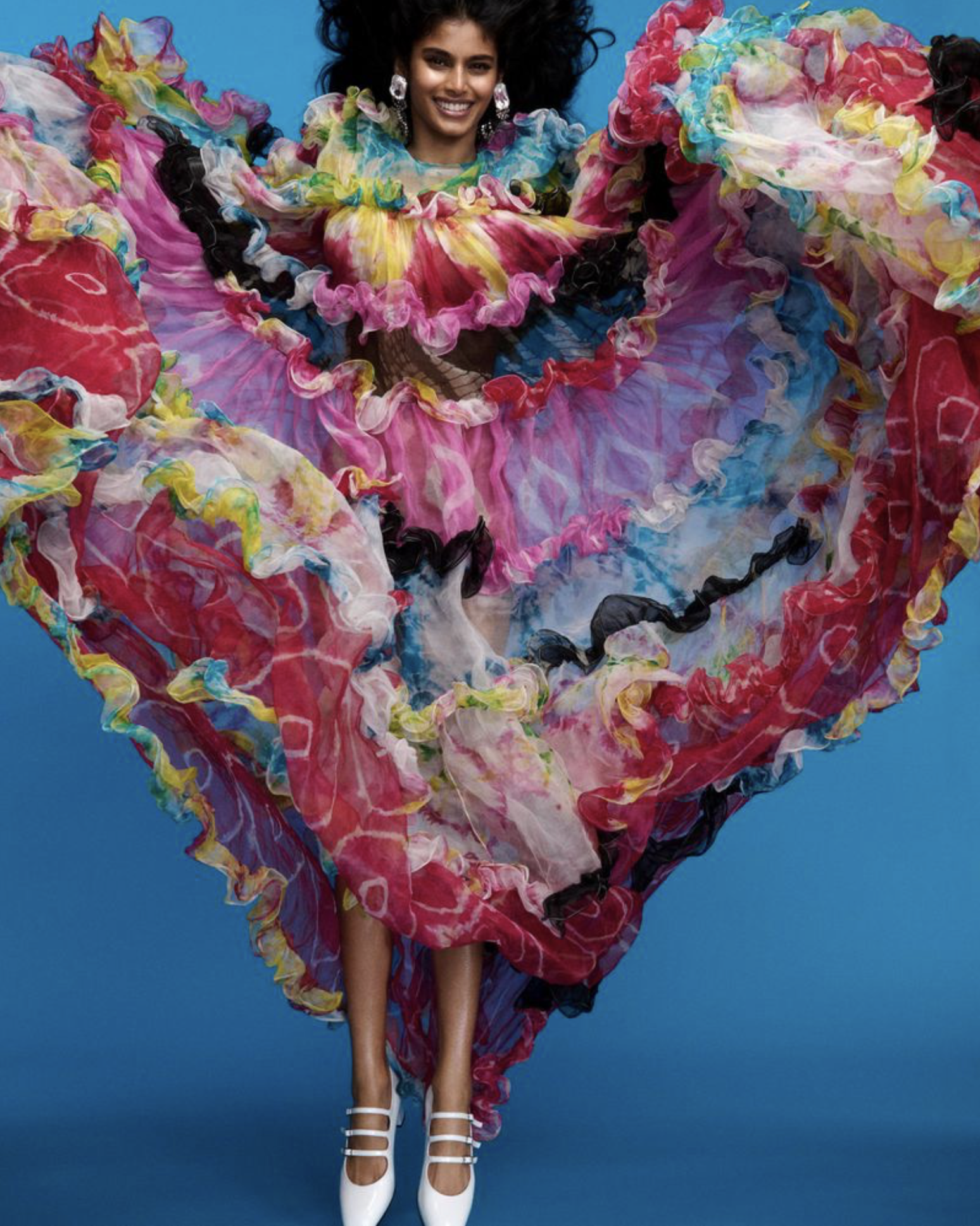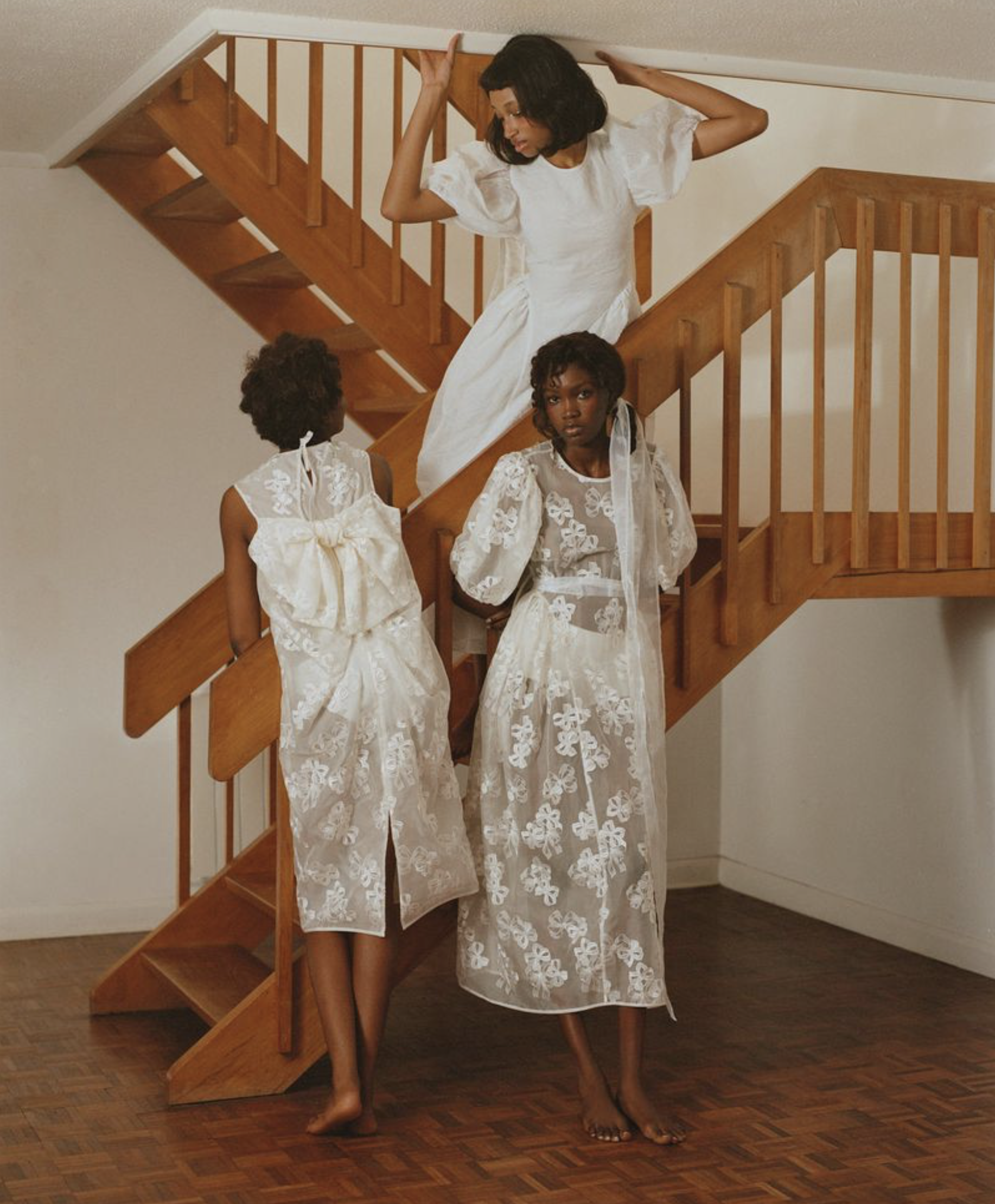Sustainable Closed Denim AW23 Campaign Lensed by Alexandre Haefeli
/Photographer Alexandre Haefeli [IG] shoots the AW23 Closed Denim [link]AW23 Campaign, featuring models Alhassane Francois, Bunny Syxes, Clara Fossar, Michelle Laff, Mika Santos, and Moustapha Sy. Margherita Moro styles the campaign, with creative direction by Julien Gallico./ Makeup by Anna Neugebauer; groomer Dennis Brandt
Is Closed Denim a Sustainable Brand?
In recent years, sustainability has become a critical factor for the fashion industry. Consumers are more conscious than ever about the environmental and social impact of the clothes they wear — although still not conscious enough.
Closed Denim, a renowned fashion brand, has gained attention for its commitment to sustainability and we have promoted Closed as a sustainable brand.
AOC was surprised to find ourselves assuming recently that 7 for All Mankind is a sustainable denim brand, when it is not based on my research. There is a free-standing website with a few denim styles that are sustainable.
Today, I asked Lulu to get involved, running our query through Squarespace AI, which is vastly superior to the other two AI services in our portfolio. Note also that I probably ask a minimum of five more questions from the original in an AI query like this one, and the responses are edited into earlier responses. Lulu is excellent at writing generalized texts. But when I ask her to give me specific organizations that Closed Denim belongs to, she can do it. But all the text must be reassembled. Many of those questions are based on my own knowledge of denim or Closed Denim specifically. I reviewed the Closed website before beginning this post.
Does Closed Denim truly deserve its reputation as a sustainable brand?
Sustainable Materials and Production
Closed Denim has made significant strides in using sustainable materials and production methods. The brand places a strong emphasis on organic cotton, which reduces water usage, minimizes chemical inputs, and promotes healthier soil. They also work with innovative suppliers who use new technologies to limit the environmental impact of textile production.
As a sustainable denim brand committed to promoting ethical and eco-conscious practices, Closed Denim actively participates in global rating organizations that evaluate and monitor their progress. Recognizing the significance of transparency and accountability, Closed Denim strives to be at the forefront of sustainable fashion, demonstrating their commitment by seeking validation from respected evaluation bodies.
One such influential organization that Closed Denim belongs to is the Global Organic Textile Standard (GOTS). GOTS is an internationally recognized certification that ensures the organic status of textiles throughout the entire production process involving both environmental and social criteria. Closed Denim's affiliation with GOTS underscores their dedication to sourcing organic materials, reducing chemical inputs, and preserving ecological integrity.
Closed Denim also partners with the Better Cotton Initiative (BCI), as they strongly believe in promoting sustainable cotton farming. BCI is a global initiative working towards making cotton production better for the environment and the people involved. By supporting BCI, Closed Denim ensures the responsible use of water, reduced chemical usage, and improved livelihoods for cotton farmers.
Furthermore, Closed Denim actively participates in the Sustainable Apparel Coalition (SAC), a collective of leading brands, retailers, and manufacturers focused on developing sustainable practices across the fashion industry. SAC's holistic assessment tool, the Higg Index, enables brands to measure and manage their environmental and social impact.
AOC notes that the Higg Index has been the suject of controversy over the past year. I asked Lulu to get us the latest update on the Higg Index, and it appears at the end of this article.
Overall, Closed Denim's involvement with global rating organizations offers confirmation of their commitment to sustainable practices and provides a benchmark for their progress. By actively seeking validation, Closed Denim demonstrates their dedication to being a leader in the sustainable denim industry and shows customers that they can trust the brand's sustainability claims. Closed really stresses this message on their website.
In addition to these global rating organizations, Closed Denim also engages with local and regional sustainability certifications and evaluations specific to their operations. They believe in concrete actions, transparency, and remaining accountable to their customers and stakeholders. By aligning with recognized evaluation bodies, Closed Denim maintains a strong focus on continuous improvement and identifies opportunities to push the boundaries of sustainable denim production further.
Manufacturing Processes
Closed Denim also deserves credit for their commitment to responsible manufacturing. The brand has implemented strict environmental standards in their factories, ensuring safe working conditions and fair wages for their employees.
Additionally, they actively support local communities, promoting education and social projects within the areas where their factories are located.
Circular Economy and Supply Chain Transparency
A crucial element of sustainability in the fashion industry is implementing a circular economy model. Closed Denim has recognized this and has been proactive in promoting the lifespan of their products. They encourage responsible consumption by making durable denim and providing repair services for their customers.
Furthermore, Closed Denim prioritizes supply chain transparency. By disclosing their manufacturing processes and suppliers, they uphold accountable practices and foster trust among their customer base.
Waste Reduction and Design Innovation
To truly embody a sustainable brand, waste reduction must be a focal point. Closed Denim has made progress in this area by implementing recycling programs. They have introduced closed-loop production processes, where old denim is transformed into new fabrics, reducing waste and promoting a circular approach. Note that currently, the 2021 report is posted online.
Moreover, Closed Denim deserves recognition for their design innovation. By producing timeless, durable pieces, they aim to create a lasting wardrobe staple, reducing the impulse for fast fashion consumption. Their attention to detail in design ensures that their items stay relevant for years to come.
Conclusion
Based on the comprehensive analysis above, it is evident that Closed Denim has embraced sustainability as a core value. The brand has implemented sustainable materials, responsible manufacturing practices, and circular economy initiatives. Their efforts to reduce waste, prioritize transparency, and promote durability provide a solid foundation for their claim as a sustainable brand.
However, it is important to note that sustainability is a journey rather than a destination.
Addendum: I asked Lulu if there is any information about Closed Denim having the equivalent of the US B-Corp status. She responded [and changed her voice to I] Sqarespace knows I call her Lulu, and I think it’s interesting for you to see how this works.
As of my research on 06/21/2023, Closed Denim is indeed a European brand. However, I couldn't find any official record of Closed Denim having B-Corp status. It's important to note that B-Corp status is generally associated with companies from North America, as it is offered by the nonprofit organization B Lab, based in the United States.
In Europe, the equivalent certification to B-Corp is known as "Benefit Corporation" in some countries. However, the availability and adoption of this certification can vary from country to country. An organization seeking the European equivalent of B-Corp status would need to explore country-specific certifications such as "Société à Mission" in France or "Gemeinwohl-Ökonomie" in Austria.
I also asked Lulu to check the status of the Higg Index, given the pushback by many environmentalists. I can’t remember exactly how Lulu’s answer reads, but the main argument against Higg is that it wasn’t grading the product on a cradle to grave curve, including after customer purchase.
Let’s see what she responded — unedited by me. It’s pretty impressive, and it feels strongly after a month that the SS-AI is also adapting to me as wanting richly-informed responses because this is the way I’ve always written. Compared to other services, Lulu has full inner access to all AOC writing since 2007.
The Current Status of the Higg Index in Fashion Manufacturing
As of today, 06/21/2023, the Higg Index continues to be a contentious topic among environmentalists within the fashion manufacturing industry. The Higg Index, a widely used sustainability assessment tool, was developed by the Sustainable Apparel Coalition (SAC) to measure the environmental and social impacts of apparel and footwear production.
While the Higg Index has gained popularity and usage throughout the industry, it has encountered its fair share of criticism and controversy. Detractors argue that the Higg Index lacks transparency, fails to address all aspects of sustainability and social responsibility, and allows brands to engage in greenwashing. Environmentalists and activists question its overall effectiveness in driving meaningful change and reducing the negative impact of fashion manufacturing on the planet.
In recent years, efforts have been made to address some of these concerns. The SAC has been actively working on improving the Higg Index and its methodologies. Collaborations with industry stakeholders, NGOs, and experts have helped refine the assessment metrics, ensuring a more accurate representation of environmental and social impacts. Furthermore, the inclusion of additional modules, such as the Chemicals Management Module and the Social and Labor Convergence Project, aims to provide a more comprehensive evaluation of sustainability practices throughout the supply chain.
Despite these advancements, the Higg Index still faces challenges in achieving widespread adoption and harmonization across the fashion industry. Critics argue that participation in the Higg Index remains voluntary, leading to inconsistent reporting and difficulty in comparing the sustainability performance of different brands.
Additionally, the complex nature of global supply chains and the continuous introduction of new materials and processes pose ongoing challenges for the Higg Index to keep up with the ever-evolving fashion landscape.
To address these concerns, there have been calls for greater regulation and standardization in the industry. Some environmentalists advocate for mandatory reporting of sustainability metrics, imposing penalties on non-compliant companies, and promoting greater transparency throughout the supply chain. These measures would help establish a level playing field and increase the credibility of the Higg Index as a tool for driving sustainable practices.In conclusion, the current status of the Higg Index in fashion manufacturing remains a topic of controversy and debate among environmentalists. While efforts have been made to improve and expand the assessment tool, challenges in achieving consistent adoption and overcoming industry resistance persist. Environmentalists continue to push for more comprehensive and transparent sustainability practices, calling for increased regulation and accountability to ensure a more sustainable future for the fashion industry. ~ Lulu








